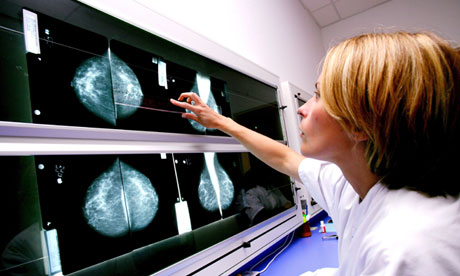
Rosie Lord, 20, is a carer from Essex, with a two-year-old son. She had a preventive double mastectomy in March, and is still undergoing breast reconstruction.
I always knew there was a history of breast cancer in my family, because my nan on my dad's side had died of the disease when she was just 34. But I didn't think about getting tested until two years ago. My aunt had been diagnosed with breast cancer a few years before – thankfully she got through it – and as a result, my dad went to be tested. That came back positive, and I went for three appointments. In the first, I spoke to doctors about the gene. In the second, I had blood tests. And then I went for the results.
The test showed an 80-90% chance of contracting the disease in future, and two options were put to me. I could either wait until I was 30, and then have yearly screenings to check for breast cancer, or I could go for the risk-reducing double mastectomy. I already knew I wanted to do that. When you've got the gene, it's a constant concern, and even though I didn't break down emotionally when I heard, it felt like a timebomb. I began checking my breasts all the time, and I just wanted that worry gone.
I had the obligatory counselling session, to make sure I was mentally prepared for the operation, and there were no issues; I was adamant about what I wanted. My surgeon was concerned that I was the youngest patient he'd ever performed the operation on, but not that anything could go wrong. I was under anaesthetic for about six hours, and when I woke up, it was awkward to move around – I had drains coming out of each breast – but not excruciatingly painful. It was fine, as long as I was able to lie still. Tissue expanders had been put into my breasts, to stretch the skin and muscle, and when the time is right those will be exchanged for implants.
There's still a very small chance of me contracting breast cancer, but the risk is now lower than for the average person. I decided to keep my nipples, and the cancer can develop there, but it's such a small area of skin that hopefully it would be caught quickly. I won't be able to breastfeed if I have more children, but my son didn't take to breastfeeding, and he's healthy and happy, so I'm not worried about that.
I think the notion that your breasts define you as a woman is nonsense. I've been with my partner for six years, and he didn't raise any concerns about that side of the operation at all. To me, breasts don't make you who you are, and in the situation I was in, I can't see why someone wouldn't go ahead with the operation.
Rosie Lord was talking to Kira Cochrane

